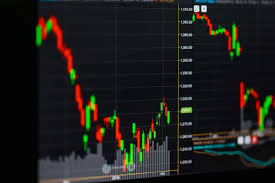
The Ultimate Guide to Choosing a Forex Trading Broker
In the world of financial trading, selecting the right Forex trading broker is crucial to your success as a trader. Many newcomers to the field often overlook this critical step, focusing more on strategies and market analysis. However, the broker you choose will significantly impact your trading experience and profitability. This guide aims to outline essential factors to consider when selecting a Forex trading broker, as well as the potential benefits of utilizing reliable brokers such as forex trading broker ex-zar.com.
Understanding Forex Trading Brokers
A Forex trading broker acts as an intermediary between you, the trader, and the foreign exchange market. Their primary function is to facilitate trading by providing access to the market, executing trades, and offering various tools and services to enhance your trading experience. Brokers generally charge a commission or spread for their services, which can vary significantly from one broker to another.
Types of Forex Brokers
Before diving into the selection process, it’s necessary to understand the different types of Forex brokers available. Generally, brokers can be categorized into the following types:
- Market Makers: These brokers create a market for traders by providing liquidity and setting the prices at which you can buy or sell currencies. They often offer fixed spreads, making it easier to predict trading costs.
- ECN Brokers: Electronic Communications Network (ECN) brokers connect traders directly with liquidity providers, offering variable spreads and faster execution speeds. They usually charge commissions on trades.
- STP Brokers: Straight Through Processing (STP) brokers route orders directly to the market, relying on various liquidity providers to execute trades at the best available prices. This often results in lower spreads and faster execution times than market makers.
Key Factors to Consider When Choosing a Forex Trading Broker
1. Regulation and Trustworthiness
One of the most critical factors is the broker’s regulatory status. A regulated broker operates under stringent rules and guidelines set by financial authorities, ensuring the safety of your funds. Always check if a potential broker is regulated by reputable organizations such as the Financial Conduct Authority (FCA) in the UK or the Commodity Futures Trading Commission (CFTC) in the USA.
2. Trading Costs
Another vital aspect to consider is the cost of trading. This includes spreads, commissions, and other fees that may apply. Some brokers offer tight spreads and low commissions, which can be more advantageous for active traders. Always add up these costs when evaluating different brokers to determine the total cost of your trades.
3. Trading Platforms

The trading platform is the software you will use to place trades, analyze the market, and manage your portfolio. It should be easy to navigate, stable, and feature-rich. Popular platforms such as MetaTrader 4 and MetaTrader 5 are widely used due to their extensive tools and capabilities.
4. Customer Support
Efficient customer support is crucial, especially for newcomers who may need assistance. Check the broker’s support channels, response times, and the availability of educational resources such as webinars or tutorials.
5. Deposit and Withdrawal Options
Understanding how you can fund your trading account and withdraw your profits is essential. Check the range of deposit and withdrawal methods available, processing times, and any associated fees. Some brokers might offer more flexible options than others, such as credit cards, bank transfers, e-wallets, and more.
6. Range of Markets and Instruments
Consider the variety of currency pairs and other assets the broker offers. A more extensive selection allows you to diversify your portfolio and take advantage of many market opportunities. Some brokers also provide access to commodities, indices, and cryptocurrencies.
7. Leverage and Margin Requirements
Leverage can amplify both your potential profits and losses. Different brokers offer varying leverage ratios, which significantly impacts your trading strategy. It’s essential to understand how leverage works and choose a broker that offers a suitable level given your trading style.
Conclusion
Selecting the right Forex trading broker is a vital step toward achieving success in the Forex market. By considering factors such as regulation, trading costs, platform usability, customer support, and available instruments, you can make an informed decision. Always take the time to research and compare different brokers to find the one that aligns with your trading goals and financial strategies. Brokers like ex-zar.com offer competitive features that may suit your needs well. Remember, your trading journey begins with the right broker, so make your choice wisely.